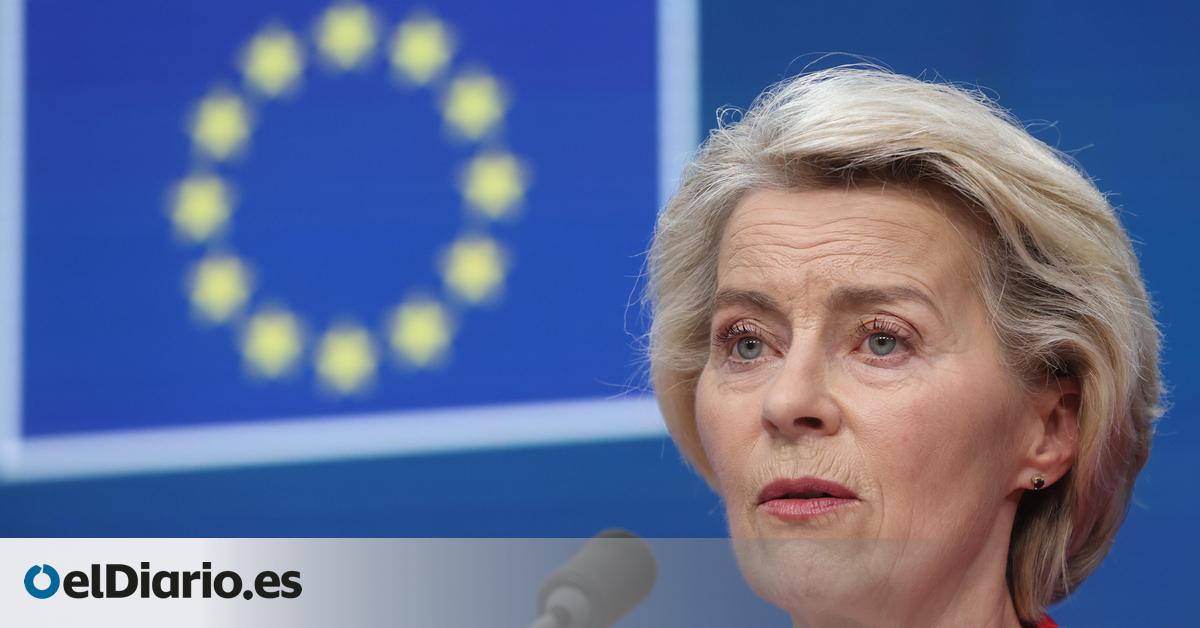
There are twelve days left for the deadline for Donald Trump and Ursula von der Leyen to give to bury the ax of the commercial war and the tension begins to palpate within the EU. The division emerges at the time of determining how the solution is reached. The European Commission has informed EU leaders about the last proposal that has come from the Trump administration. There are countries, such as Germany, who want to set the matter as soon as possible, while others, such as France, warn that any agreement cannot be accepted and that there can be no imbalance in commercial relations with the US.
The German Foreign Minister Friedrich Merz has led the position of those who advocate to reach an agreement as soon as possible to try to save some relevant sectors for their economy, such as the car or the chemist. “It is better to act quickly and easily than slowly and very complicated,” he said after the 27th leaders meeting. “We have less than two weeks until July 9 and a sophisticated commercial agreement cannot be agreed,” he said. Merz’s fear is that Trump’s current tariffs (10% universal, 50% to aluminum and steel, or 25% to cars) are already damaging companies and wants to get out of that situation as soon as possible and leave for a second more sectorial phase for later. Italy aligns with that position.
“Industries that we have in Germany – chemistry, pharmaceutical, mechanical engineering, steel, aluminum, the car – all of them are currently being taxed with tariffs so high that it is really putting companies at risk,” said Merz after his first meeting in Brussels with the heads of government of the EU. “Time is over,” said Luxembourg Prime Minister Luc Frieden.
Emmanuel Macron is located on the opposite side, which has rejected the false matter, that is, the agreement ends up being “unbalanced.” “You have to use all the tools to guarantee a fair agreement,” said the French president, who has warned that, if the US maintains the 10%general tariff, Europe must respond equivalently. “Our goodwill should not be seen as a weakness,” he said. “The United States is our main partner, but you have to be similar to our partners in some sense,” added the Polish, Donald Tusk.
“An agreement is always better than a zero conflict and tariffs is always better than a tariff,” said the president of the European Council: “Uncertainty is the worst for our economy. We have to get certain … as soon as possible,” said the Portuguese, who exercises as a kind of referee in European discussions. “We have complete confidence in the ability of the European Commission to lead these negotiations,” he said.
Sánchez: “No comment” about Trump’s threat
“I agree with the agreement that reaches the European Commission and President Von der Leyen,” was Pedro Sánchez’s answer to the question of whether I would accept a 10% tariff to achieve a quick agreement or if he would prefer a “symmetrical” agreement. The president of the Government has expressed the “total support for the president of the commission and the commissioner SEFCOVIC” in the negotiations they are piloting.
What Sánchez has assured is that no chief of government has transferred concern about the threat Trump poured over Spain with a resurgence of the commercial war. “They will pay double,” said US president after the NATO summit for Sánchez’s refusal to raise military expenditure to 5% of GDP. “There has been no comments,” said the president at the press conference after the European Council.
Sources from the European Commission on Thursday that Trump’s threat to Spain does not have a negative effect or interfere with negotiations. “We hope it does not influence,” said those sources on the banks of the European Council meeting.
The threat, in any case, is not perceived as a drama by the leaders. “It is not always easy to interpret what it means exactly,” replied Belgian prime minister, Bart of Wever, referring to Trump’s “spontaneity”.
Commerce competencies correspond to the whole of the European Union, which acts as an economic bloc and a customs union. In fact, in Brussels they admit that they will defend a Member State if you receive an attack on commercial matters. It would not be the first time, and neither in the specific case of Spain: in 2022, the community government warned Algeria with reprisals after it threatened to cut relations with Spain due to the historical turn with respect to the Sahara.
Source: www.eldiario.es

